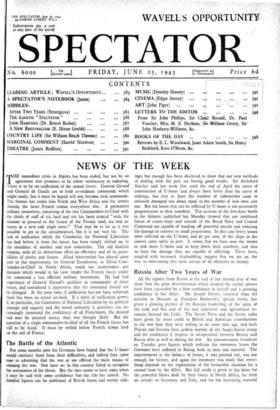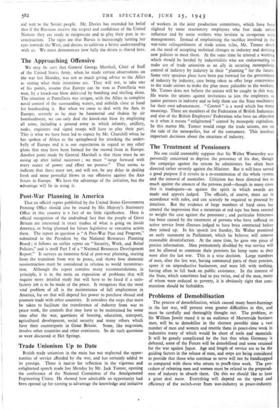Russia After Two Years of War
All the reports from Russia at the end of her second year of war show how the grim determination which marked the earlier phases have been succeeded by a firm confidence in herself and a growing confidence in her Allies. Mr. Joseph Davies, returned from his mission to Moscow as President Roosevelt's special envoy, has given a glowing picture of the Russian leadership, of the spirit of the rank and file, and of the vast industrial and agricultural re- sources beyond the Urals. The Soviet Press and the Soviet radio have given far more credit to British and American contributions to the war than they were willing to do some time ago, and both Pravda and lzvestia have spoken warmly of the Anglo-Soviet treaty and the confidence it inspires in co-operation between Britain and Russia after as well as during the war. An announcement broadcast on Tuesday gave figures which indicate the enormous losses the Germans have suffered in Russia both in men and material The improvement in the balance of forces, it was pointed out, was not enough for victory, and again the statement was made that every- thing depends on the exploitation of the favourable situation for a second front by the Allies. But full credit is given to the latter for the powerful blows dealt by their forces in North. Africa, for their air attacks on Germany and Italy, and for the increasing material
aid sent to the Soviet people. Mr. Davies has recorded his belief that if the Russians receive the respect and confidence of the United Nations they are ready to reciprocate and to play their part in re- construction. The signs are that Russia is increasingly turning her eyes towards the West, and desires to cultivate a better understanding with us. We must demonstrate how fully the desire is shared here.































